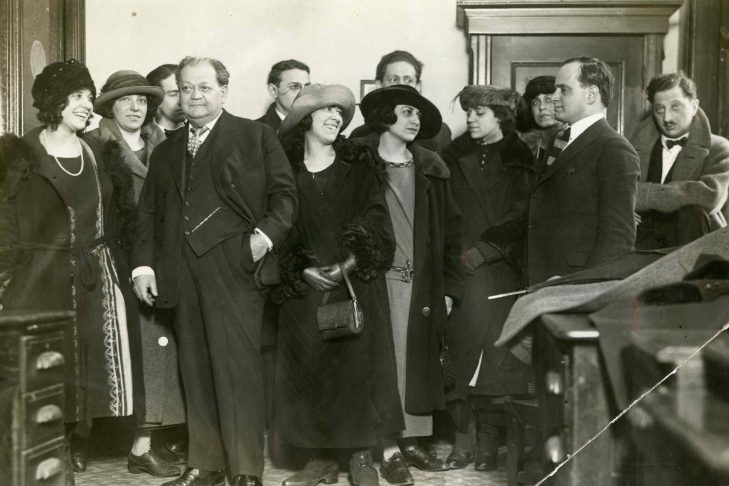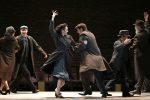Sholem Asch’s play “God of Vengeance” caused quite a stir when it came to Broadway in 1923. The play, a mainstay of Yiddish theater since its debut in 1907, is widely known for its frank depictions of sexuality and prostitution in a Polish Jewish shtetl. The drama centers on the efforts of Yankl, a brothel owner, and his wife, Sarah, a former prostitute, to find their teenage daughter Rifkele a respectable Jewish husband. To show his community that he has turned over a new leaf, Yankl has commissioned a Torah scroll. In addition to bestowing Yankl and his family social and religious status, the scroll is intended to be an amulet for the “good and pure” Rifkele.
Yankl has engaged a rabbi, who is also a matchmaker, to open doors in society previously closed to him. But Rifkele complicates the situation by falling in love with Manke, who works for Yankl as a prostitute. The love and affection between the two young women is pure and affecting. Their onstage kiss in 1923 was noted as the first depiction of lesbianism in the Yiddish theater and landed the entire company in court on charges of indecency.
As complex as Rifkele and Manke’s relationship is, it appears that the rabbi, who ostensibly has the closest connection to God, is even more complicated for the way he defies the shtetl’s religious and communal norms. He looks the other way when Yankl offers a hefty dowry to compensate for the family’s unsavory business, and the rabbi brings forward a worthy candidate without a second thought. The rabbi takes advantage of the fact that Yankl is desperate to buy his way into the good graces of God and society.
Asch was 26 when he wrote “God of Vengeance.” He was a former yeshiva student whom David Mazower, Asch’s great-grandson, has described as an “intensely spiritual man. Although he rebelled against his traditional education, my great-grandfather wrestled with God, and his own version of faith throughout his life. His strongest works reflected that.”
Mazower was in the audience at the stage reading of “God of Vengeance” at the Lyric Stage Company last week. The Jewish Arts Collaborative presented the play and sponsored a post-performance talkback with Mazower and Barbara Wallace Grossman, the play’s director. Mazower is also the editorial director of the Yiddish Book Center in Amherst and co-editor with Aaron Lansky, the Center’s founder, of the English-language magazine “Pakn Treger.”
Mazower said that during the time Asch wrote “God of Vengeance” he was exposed to the latest literary trends in Polish, German and Russian modernism. He had seen the works of Ibsen and Shaw performed, and he was regarded as a cosmopolitan European writer. Asch’s “brothel play,” as it came to be known, was translated into Polish, Hebrew, English, Italian, French, Dutch, Czech, Swedish and Norwegian. A silent film based on the work was also released.




